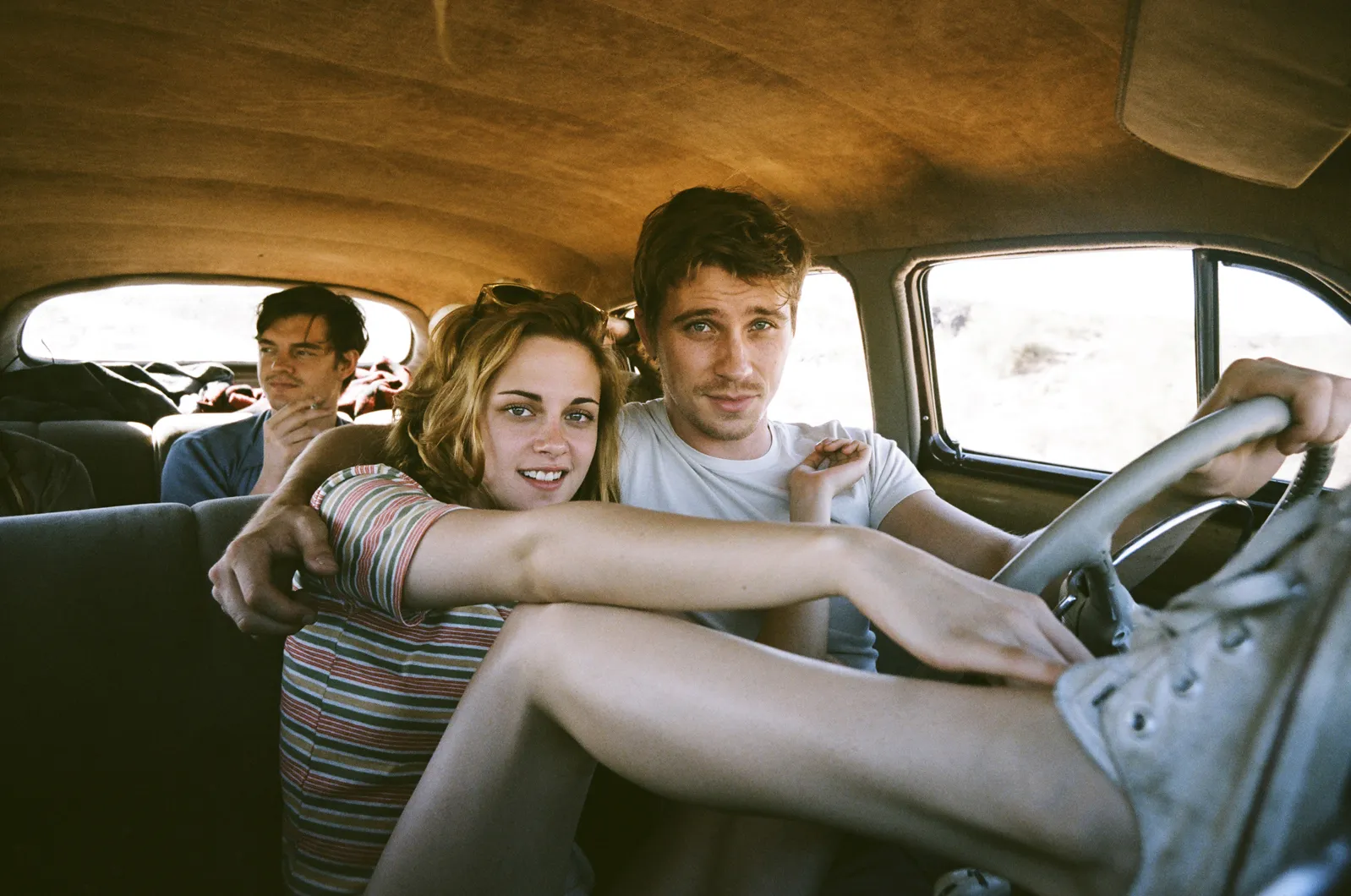10 Best Travel Books for Igniting Your Wanderlust: Traveling helps you recharge your mind, body, and soul once in a while when the grind of everyday reality starts to weigh you down. To put you in the best mood for it, we have curated a list of the ten best travel books, which are quirky and unconventional, to help you gear your mind up for a trip. Whether you are setting out on a trip in some time or craving to feel the wind kissing your hair, these books will take you through various kinds of travel adventures to give you an insight into how traveling replenishes your bag of experiences. Happy reading 🙂
- 1. Full Tilt: Ireland to India with a Bicycle by Dervla Murphy
- 2. Without Reservations: The Travels of an Independent Woman by Alice Steinbach
- 3. Along the Ganges by Ilija Trojanow
- 4. On the Road by Jack Kerouac
- 5. A Week at the Airport: A Heathrow Diary by Alan de Botton
- 6. American Notes for General Circulation by Charles Dickens
- 7. The Baron in the Trees by Italo Calvino
- 8. Waterlog: A Swimmer’s Journey Through Britain by Roger Deakin
- 9. In a Sunburned Country by Bill Bryson
- 10. Down and Out in Paris and London by George Orwell
1. Full Tilt: Ireland to India with a Bicycle by Dervla Murphy
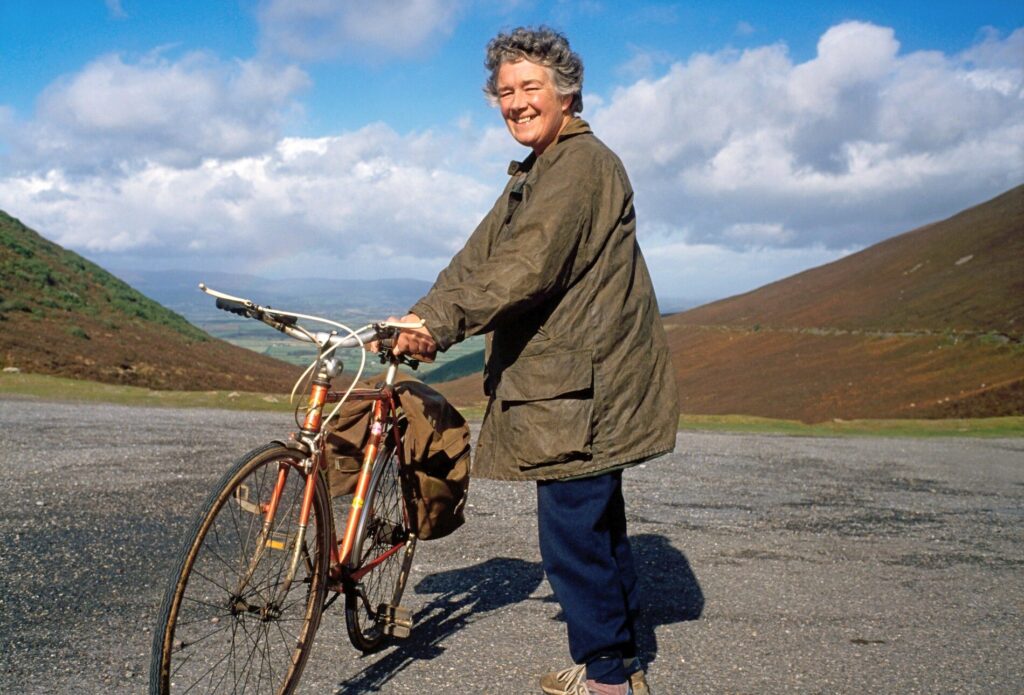
One of the best travel books and one of the best books on cycling, this book hints at the maddening impulse to take a trip and the frantic desire to set out on the road in search of adventures (even if it is the peak of winter). It describes the changing landscape and new faces from Dublin to Delhi via Europe, Iran, Afghanistan, and Pakistan.
Full Tilt follows Murphy as she sets on her bicycle from Ireland in 1963. She almost starves herself to death, meets some of the most hospitable people she has ever met, gets sunburnt several times, falls sick due to bad sanitation, and prey to animal ferociousness and human bureaucracies as she travels unaided and devoid of any luxuries on this road trip. She is constantly encountering different cultures and steers through them with a humorous attitude and penchant for meditative thoughts. Her travels in this book cover approximately 3000 miles and six months of her precious life. Apart from the fact that a lone traveler woman on a bicycle trip across countries from the 1960s is unimaginable, this book commands the readers’ attention through the adrenaline rush it produces. If you are on the edge of your seat about setting out on an impulsive trip, this is the book you need to pick up.
2. Without Reservations: The Travels of an Independent Woman by Alice Steinbach
Steinbach’s accounts as an independently traveling woman in this book perhaps make it one of the best travel reads on this list. A journalist by profession, she trips across the European cities of Paris, London, Oxford, Milan, Venice, Siena, Rome, and Asolo to take a break from the life she was leading. Could she be called a modern-day flaneuse?
In this book, Steinbach is searching for answers to a few feelings bundling inside her for a while, including the act of defining herself with rest to other people’s opinions and expectations. This book, then, is a quest for self-discovery through a series of travels. It is important to remember here that she is not a tourist but a traveler; the accounts of her journeys (sent to herself in the form of postcards) in this book are full of the names of popular authors, painters, and locales that you can highlight in case you wish to explore the cultural histories of these European cities. Steinbach’s way of writing is easy-to-read and allows the readers to embark on an emotional journey with herself, helping the readers reflect with every passing page as well. If you haven’t traveled in a while, this book promises to fuel your flight of imagination.
3. Along the Ganges by Ilija Trojanow
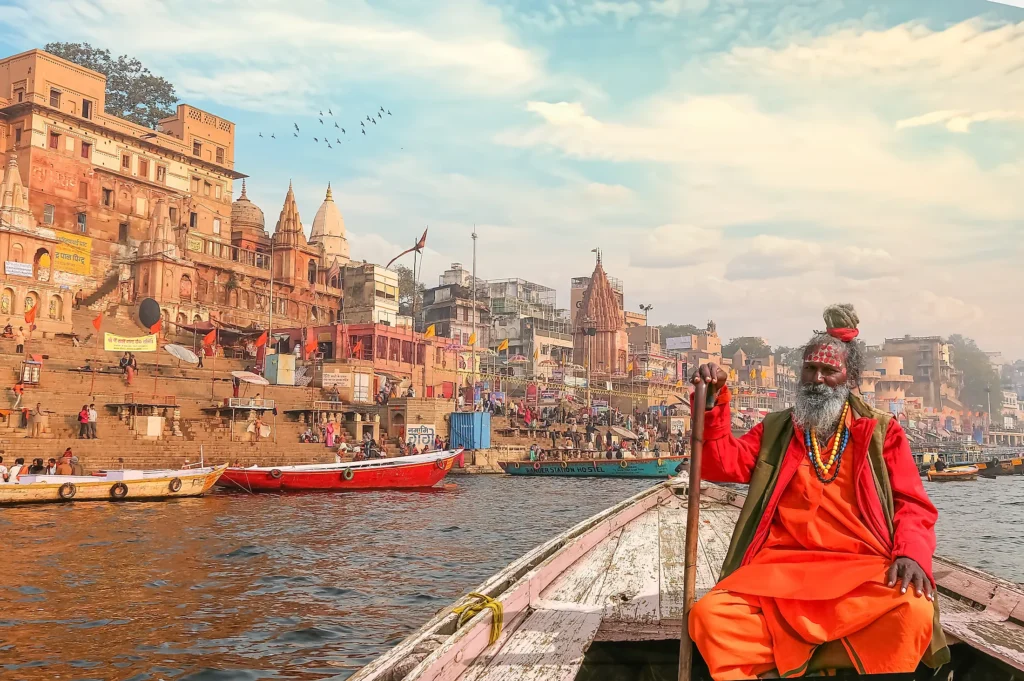
Bulgaria-born Ilija Trojanow traveled the length of the Ganges, or Ganga, one of the most nourishing rivers in the Indian subcontinent, and recorded his observations in this short, densely packed book. It shows how he is intimately familiar with the Indian landscape and the fractured identities (religious, local, ecological) that make up the teeming country.
His book succinctly captures the many myths, religious beliefs, ecological practices, and lifeforms surrounding this river. It sustains northern India, broaching a warning about climate change and its possible effects on the river and its surrounding ecology. Trojanow’s book admires the river as a life force, holding it up as a chaotic source of all life forms. It gives you a historical insight into the river and its origins, complete with details that may make it a monotonous read for some. If you are looking to get a modern insight into travel, this must-read travel book will help you learn about combining the factual and the folkloric to intimately understand the landscape of your exploration.
4. On the Road by Jack Kerouac

A classic travel book to read, Kerouac’s accounts in this book make it one of the most defining books of the post-war Beat and Counterculture generation. It describes the lives of its protagonists against the backdrop of poetry, jazz, and drug abuse, which was rampant during the late 1950s in America. It features some of the most important figures of the Beat movement, including Allen Ginsberg and William S. Burroughs, and is a vital introduction to understanding post-war American life.
This largely autobiographical book is divided into five parts, three of them describing road trips taken by the protagonists – Sal Paradise and Dean Moriarty – to various parts of the North American continent in search of freedom and beauty in order to help themselves keep alive the Great American Dream. It is frantic and reckless and specifically helps readers understand the jazz age and the protagonists’ non-conformity with traditional domestic and economic norms. This book is for those intrigued by a specific period in American history. Of course, the road trip elements in this book will make you want to hop inside a vehicle and set out to explore the world.
Related to the Best Travel Books: 20 Great Travel Movies For Those Seeking Escapism
5. A Week at the Airport: A Heathrow Diary by Alan de Botton
One of the more unconventional travel reads of all time, Alan de Botton was paid for as a promotional tool to stay as a writer-in-residence at Heathrow airport’s newest terminal in the summer of 2009. The book documents his observations and the stories he collected at the airport over a few weeks.
It rambles about the aesthetics of the airport and the unsurpassed poetry of the in-flight menu and describes the constant number of people who travel through an airport. Further, he records his conversations with all kinds of people at the airport, from pilots to passengers. He goes so far as to ruminate about the uncanny silence of the runaway at midnight in this airport. It is wordy, short, and an upbeat piece about life at the airport. You are bound to appreciate this if you liked Tom Hank’s The Terminal (2004) and were ever fascinated with the airport as a place of transit. It certainly helps you look at an airport in a fresh light.
6. American Notes for General Circulation by Charles Dickens
Several popular novelists throughout the centuries have penned down travelogues from their travels. Dickens’ detailed account of his six-month trip to North America may be one of my favorite travel books to read. It evokes a fascinating account of 19th-century America from the eyes of a Britisher with superb charm and wit characteristic of Dickens’ writing.
When Charles Dickens set out on a sea voyage to America in January 1842, he was curious about the revolutionary society on the other side of the Atlantic Ocean. He is clear and precise about his descriptions, from the magnificence of Niagara Falls to his visits to law courts and hospitals. It is Dickens’ first encounter with the New World but doesn’t opine in favor of the latter, especially slavery. He seems to be full of complaints about America rendered sarcastically; no wonder the book was initially not received well by the Americans. Although Dickens appears to have mellowed down in his consequent trip to the States. It is an entertaining travelogue if you are looking for a light read to help you gear up for long travel.
7. The Baron in the Trees by Italo Calvino
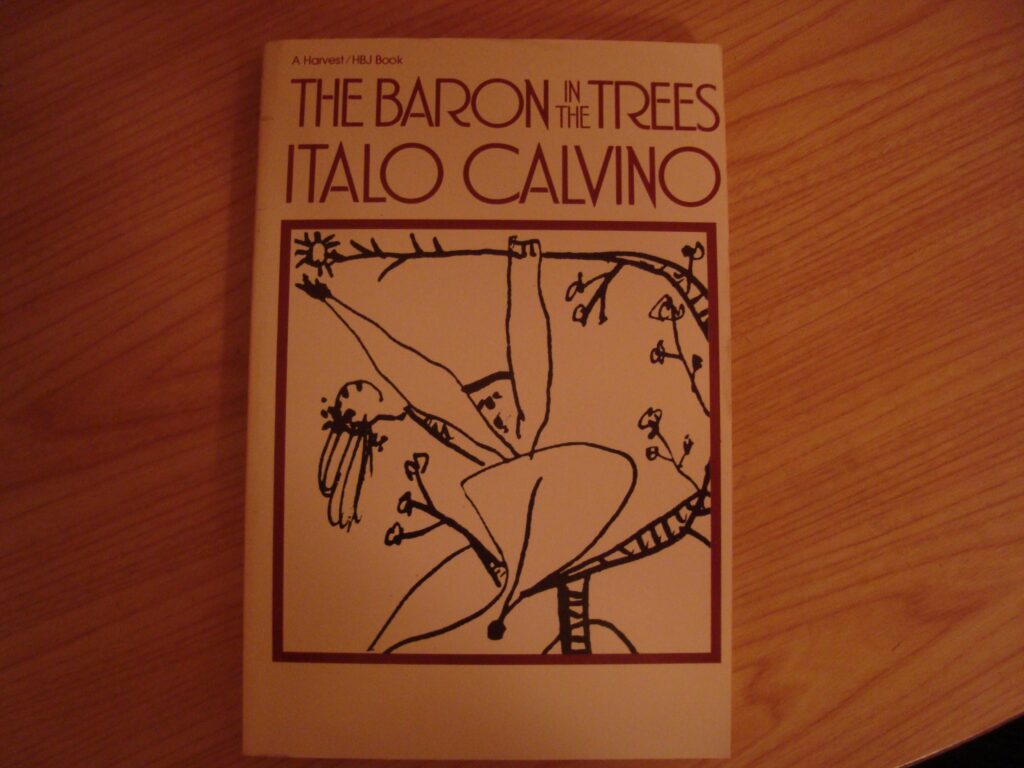
An Italio Calvino novel, this is a philosophical fiction that doubles as a metaphor for independence. It is whimsical, but so is the adventure of living alone and entirely on one’s terms. Calvino’s novel is a sheer joy to gorge on, brimming with the delight and charm of a fantastical novel set in the 18th century.
The story is set in an imaginary Italian village and is narrated by Biagio (the younger brother of the novel’s protagonist). It follows Cosimo Piovasco di Rondo, the baron or firstborn of a well-to-do family. Young baron Cosimo refuses to eat his snail soup falls out with his father, and climbs the trees of his home’s garden, promising never to come down to the ground ever again. Thereafter, this coming-of-age story takes us through the experiences of the baron in his family garden and the woods surrounding it, from fruit thieves to meeting his first love. Calvino’s writing basks in the nostalgia of a life lived independently and inspires the reader to go out there and experience the world for themselves, thereby stabilizing their connection with both nature and one’s self.
8. Waterlog: A Swimmer’s Journey Through Britain by Roger Deakin
Deakin’s accounts of his travel through the waterways of Britain force us to look at journeys and traveling in a different way. After all, it is the unconventional (and wild) route. In 1996, Deakin decides to swim through the British Isles – from rock pools and ponds to rivers, streams, and waterfalls (even canals). This unique aquatic journey presents him with different sets of ideas about the state of Britain, ones he notes down poignantly in this book.
It is also full of anecdotes about swimming and the right of a swimmer to be able to explore the waterways of his country without being thought of as an anomaly. It asserts over and over again that swimming is not an activity of the rural past. The narrative is interspersed with funny incidents and exchanges, making this personal account a gorgeous treat for your summer booklist. Deakin’s prose is meandering and melancholic, filling you with a sense of requiem about the quickly-disappearing nature of wild swimming and public pools. The spontaneity of his decisions and his zig-zag quest informs you about waterbodies, types of swimming, and aquatic ecosystems and forces you to perceive the geography of Britain a little differently.
9. In a Sunburned Country by Bill Bryson
When we are talking of the best travel books, it is impossible to skip mentioning Bill Bryson, the man whose accounts of travel across the world garnered general interest in reading travelogues in modern times. Bryson, here, takes us to Australia – with its teeming city life and wild, wild countryside.
Bryson hops across Australia, meeting its inhabitants, tasting its cuisines, encountering its wildlife, and falling in love with the land so little explored. The book is full of a healthy dose of humor and begins with a description of how it is a difficult country to keep track of. So, he decodes his adventures in Australia for his readers, unfolding the many possibilities of rollicking around here (even taking paths untrodden by tourists). It is the perfect guide to Australia if you want to learn about the country before you take a trip to it and gives you a head-start by letting you understand the cultures of the country in greater detail.
10. Down and Out in Paris and London by George Orwell
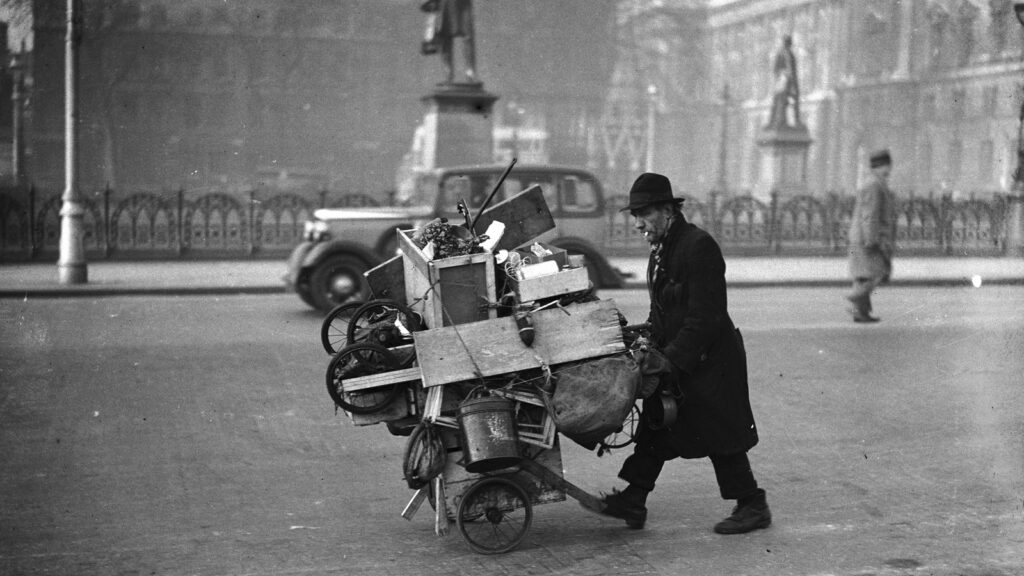
Orwell, the English journalist and author, is most famous for his profound understanding of social injustices, which he addressed in two of his most famous books, 1984 and Animal Farm. This fictional memoir is an underrated Orwell book that gives you a very disenchanted view of modern city life, especially in London and Paris.
Orwell, a struggling writer, moved into a lowly boarding room in Portobello Road, London, at the age of 24 – this is where the novel begins. He was contributing to several journals during this time, but he was forced to face a life of utter poverty. He later moved to Paris and led an active social life with the help of his Aunt Nellie while contributing to a few avant-garde journals at the time. Orwell is cynical, and his vivid prose bears testament to his scathing view of life in these metropolitans. It also explores the idea of homelessness in a city, both due to socio-economic conditions and the general feeling of alienation.

